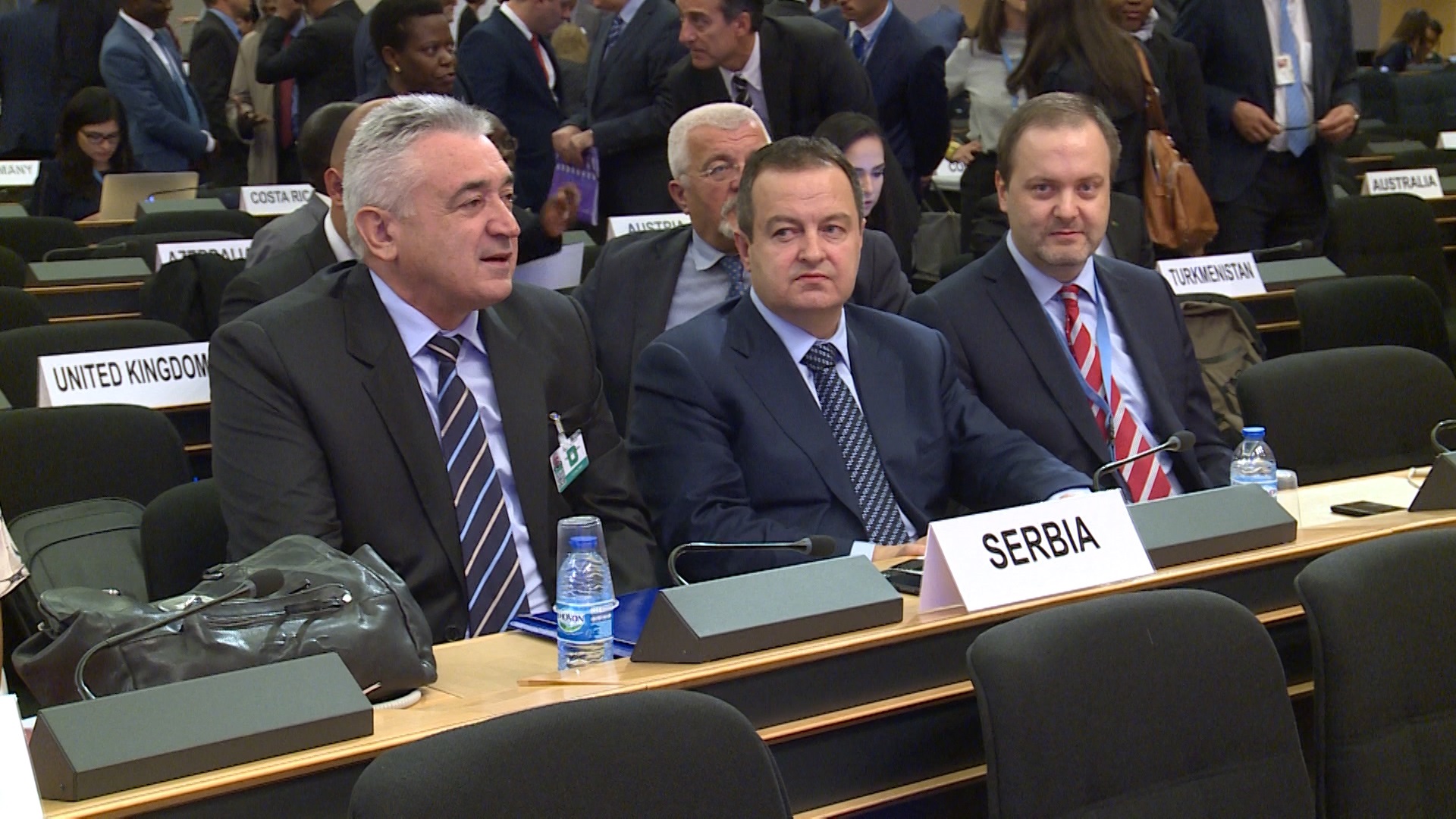



| Monday, 01 October 2018. | |
| Minister Dacic at the 69th Session of the Executive Committee of the Programme of the UN High Commissioner for Refugees | |
| + larger fontnormal font- Smaller font |
 Madam Chairperson, Madam Chairperson,Mr. High Commissioner, Your Excellencies, Ladies and Gentlemen, First of all, I would like to underline on behalf of the Republic of Serbia strong support to the untiring work of the UNHCR, whose contribution is of special significance today, because it is taking place against the backdrop of multiple challenges globally. Conflicts, instability, poverty and a lack of perspective in some regions of the world have led to mass population movements, whose consequences are difficult to predict. I believe that, in such circumstances, it is important that the international community redoubles its efforts to promote human rights and demonstrate solidarity without prejudice and selectivity, with the aim of harmonizing different views and addressing the causes and effects of the crisis. We strongly believe that this issue calls for a global solution, in the spirit of solidarity and joint efforts, for it is not a geographically limited phenomenon, but one of global proportions. Serbia's approach in tackling this challenge was humane and responsible, in line with the international standards, relying primarily on its own human and financial resources and in cooperation with United Nations bodies and agencies, and other relevant international and non-governmental organizations. Ever since 2015, refugees and migrants from the Middle East have been staying in Serbia. Following the huge refugee influx, their numbers have now fallen to 3,400. They have arrived from Asia and Africa with an intention, after transiting EU Member States, to continue their journey through Serbia on the way to the developed EU countries. Serbia has made a maximum effort to provide accommodation, food, shoes, clothes, health care and psychological and social support and assistance to all those who on the migration route stay longer on our territory. For these uprooted people and their children we have also provided education and prepared them in a way to deal with the challenges they will face on their further migration route in the future. We are particularly proud of the humane approach shown by the people of our country, reflecting our collective experience with displacement in the last two decades. I would like to remind you that the process of integration is still underway for more than 300,000 refugees and internally displaced persons from the territory of the former Yugoslavia, while 28,000 persons are still considered to be in protracted displacement, and over 200,000 from Kosovo and Metohija have the status of IDPs. Therefore, we are ready to share our experience on protracted displacement, and to contribute to the global efforts aimed at resolving this issue. Ladies and gentlemen, I would like to draw your attention to another serious project being carried out in the Republic of Serbia, with the assistance of the UNHCR as well. Namely, I refer here to the Regional Housing Programme jointly implemented by four countries – R. Serbia, Croatia, Bosnia and Herzegovina and Montenegro, in cooperation with the European Commission, UNHCR, OSCE and the Council of Europe Development Bank (CEB). We have put in a lot of effort, from drafting the Programme itself, securing the funding to developing the mechanisms, in order to be able to embark on practical implementation, which is in full swing. A major contribution to this was made by two decades of our experience in solving refugee problems and applying the good practices developed in cooperation with the European Union, UNHCR, OSCE and the Council of Europe Development Bank, to which I express my gratitude on this occasion, and to the donors who together contributed to the success of the Regional Housing Programme. A simple solution to the refugee problem does not exist. Yet, the Regional Housing Program is proof that a solution can be found if there is a will. That is a very important message, because as I have already mentioned, apart from the refugees from the former Yugoslavia, there are over 200,000 internally displaced persons from Kosovo and Metohija in the Republic, for whom, even 19 years on, conditions for the sustainable return have not been provided. We hope that the period ahead will see a positive development in relation to this issue and that internally displaced persons will be offered some solution by our side, respecting their rights that they must not be deprived of. That is why I expect all of us to do more in finding fair and durable solutions for this population. Successful implementation of the Regional Housing Program gives us all hope that solutions are reachable. In conclusion, I would like to thank the High Commissioner for Refugees, Mr. Grandi and the UNCHR for their commitment and unflagging work to resolve the current global migrant/refugee crisis, but also for their commitment and perseverance in settling the issue of protracted displacement that is very important for all of us. UNHCR and other international partners can count on Serbia as a reliable partner in meeting this goal in the future. Thank you. |